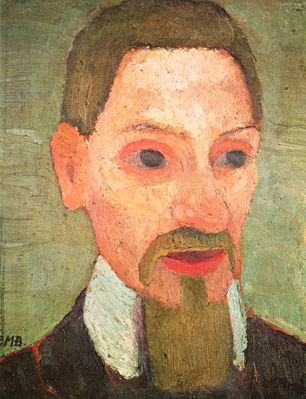 «Κάτω από τόσα βλέφαρα (Σημειώσεις για τον Ρίλκε)», τιτλοφορείται η μελέτη του Αλέξανδρου Ισαρη για τον ποιητή (που θεωρείται από τους μεγαλύτερους γερμανόφωνους ποιητές του 20oού αιώνα), που θα παρουσιάσουν το Ευρωπαϊκό Κέντρο Λογοτεχνικής Μετάφρασης και οι εκδόσεις «Ικαρος», στις 18/3 (7μμ) στο βιβλιοπωλείο «Πατάκη» (Ακαδημίας 65). Θα μιλήσουν οι: Γιάννης Ευσταθιάδης, Βαγγέλης Χατζηβασιλείου, Αλέξανδρος Ισαρης. Αποσπάσματα θα διαβάσει η ηθοποιός Μάγια Λυμπεροπούλου.
«Κάτω από τόσα βλέφαρα (Σημειώσεις για τον Ρίλκε)», τιτλοφορείται η μελέτη του Αλέξανδρου Ισαρη για τον ποιητή (που θεωρείται από τους μεγαλύτερους γερμανόφωνους ποιητές του 20oού αιώνα), που θα παρουσιάσουν το Ευρωπαϊκό Κέντρο Λογοτεχνικής Μετάφρασης και οι εκδόσεις «Ικαρος», στις 18/3 (7μμ) στο βιβλιοπωλείο «Πατάκη» (Ακαδημίας 65). Θα μιλήσουν οι: Γιάννης Ευσταθιάδης, Βαγγέλης Χατζηβασιλείου, Αλέξανδρος Ισαρης. Αποσπάσματα θα διαβάσει η ηθοποιός Μάγια Λυμπεροπούλου.
Rainer Maria Rilke (4/12/1875 – 29/12/1926). Writer and poet, considered one of the greatest lyric poets of modern Germany. Rilke created the "object poem" as an attempt to describe with utmost clarity physical objects, the "silence of their concentrated reality." He became famous with such works as DUINESER ELEGIEN and DIE SONETTE AN ORPHEUS. They both appeared in 1923. After these books, Rilke had published his major works, believing that he had done his best as a writer.
"Works of art are indeed always products of having been in danger, of having gone to the very end in an experience, to where man can go no further." (from Letters)
Rainer Maria Rilke was born René Karl Wilhelm Johann Joseph Maria Rilke in Prague, as the son of Josef Rilke, a railway official and the former Sophie Entz, the daughter of a bank official with the title of Imperial Counsellor. A crucial fact in Rilke's life was that his mother called him Sophia and forced him to wear girl's clothes until he was aged five - thus compensating for the earlier loss of a baby daughter. However, his father gave him toy soldiers and dumbbells for exercise. Later Rilke blamed his mother for his dark childhood, but she also encouraged him to read and write poetry. Rilke also learned early many of Schiller's ballads by heart.
 Rilke's parents separated when he was nine. At the age of ten Rilke was sent by his militarily inclined father to a military academy. Rilke spent miserable years at St. Pölten and Mahrisch-Weisskirchenn until 1891, and then entered a business school in Linz after studies at a preparatory school. He also worked in his uncle's law firm. Rilke continued his studies at the universities of Prague, Munich, and Berlin.
Rilke's parents separated when he was nine. At the age of ten Rilke was sent by his militarily inclined father to a military academy. Rilke spent miserable years at St. Pölten and Mahrisch-Weisskirchenn until 1891, and then entered a business school in Linz after studies at a preparatory school. He also worked in his uncle's law firm. Rilke continued his studies at the universities of Prague, Munich, and Berlin. 
Περισσότερες πληροφορίες: Rilke on Death and Other Oddities by John Mood (2007); Rilkes Frauen by Gunnar Decker (2004); The Beginning of Terror: A Psychological Study of R.M. Rilke's Life and Work by D. Kleinbard (1993); Rainer Maria Rilke by Patricia Brodsky (1988); A Ringing Glass by Donald Prater (1986); The Sacred Threshold by J.F. Hendry (1983); Rainer Maria Rilke by Heiz F. Peters (1977); Rilke on Love and Other Difficulties by John Mood (1975); Rilke: Man and Poet by N. Purtscher (1972); Rainer Maria Rilke by R.H. Wood (1970); Rainer Maria Rilke: The Poetic Instinct by Siegfried Mandel (1965); Rilke's Duino Elegies by Romano Guardini (1961); Rainer Maria Rilke by H.F. Peters (1960); Rainer Maria Rilke: The Ring of Forms by F. Wood (1958); Rainer Maria Rilke by by E. Buddenberg (1953); Rainer Maria Rilke by H. Kunisch (1944); Rilke's Apotheosis by E.C. Mason (1938) - Film by Antero Alli, based on Rilke's life, see "The Greater Circulation" (working title) - Links: John Mood (Rilke on Death and Other Oddities and Rilke on Love and Other Difficulties)
No comments:
Post a Comment